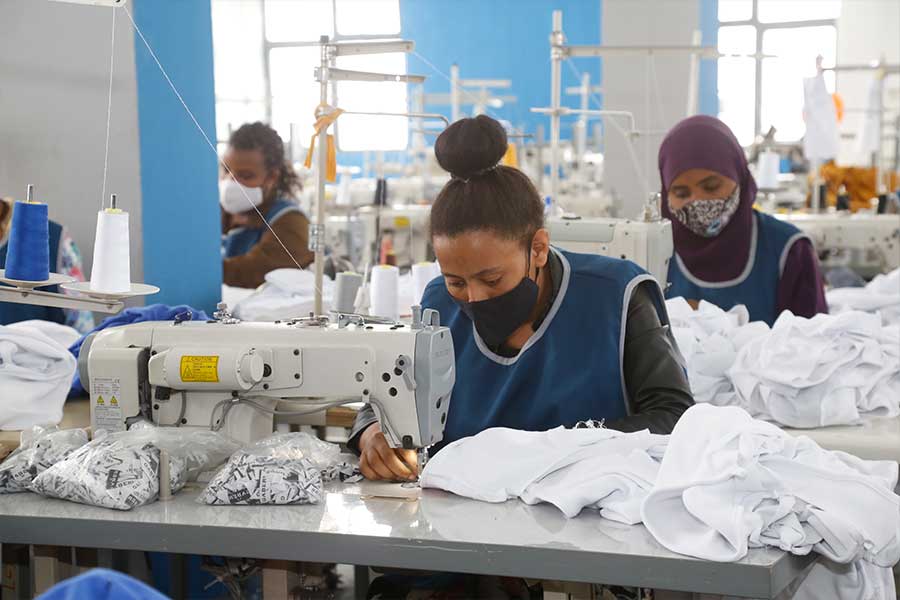
Sunday with Eden | Jul 23,2022
Dec 11 , 2021
By Christian Tesfaye
To say that nationalism is on the rise in Ethiopia is to understate matters. It has boiled over and led to a war that has taken too many lives and led to too much despair.
A strong sense of community and country is not unique to a country at war. When it is healthy, it can be a good thing. It can inspire individuals to act in the better interests of their societies. It inspires goodwill between people and provides the ground for building solid democratic institutions and laws. It can also stimulate competition and lead to innovation and advances in technology. It is a package that needs to be handled carefully, and if that is the case, it can be a good thing.
One of the healthier aspects of nationalism in Ethiopia is the #GreatEthiopianHomeComing challenge launched by the government and reinforced by its supporters. It is a response to what the government considers a misrepresentation of the situation in Ethiopia that led to many non-nationals leaving the country. It hopes to attract a million “Ethiopians and friends of Ethiopia” to visit the country by January 7, 2022.
Motives and politics aside, this could be a helpful way of buttressing tourism in the country, which the COVID-19 pandemic and political uncertainty have battered. Another initiative is Eyezonby Chapa, an online payment gateway, which raised two million dollars in three weeks for victims of the conflict from the Diaspora. It has since raised over three million dollars. This, too, is a substantial effort that can be learned from to better utilise and control from the black market the flow of remittances to Ethiopia.
Critical also to the national economy if it becomes long-term is #BuyEthiopian. It is another example of an initiative that should be more than politics and beyond short-term impacts from falling productivity or sanctions. Politics or not, buying local goods, especially value-added, makes a significant change to the livelihoods of ordinary Ethiopians that are trying to put food on the table.
There are barriers for many people from buying local goods. Primary among these is poor brand management by firms themselves. Only a few businesses advertise themselves as being local and offering support for the community. They do not show that they contribute to social issues, at the very least, by sourcing domestically. They are, in essence, bad storytellers unable to distinguish their products from every other one sold on the market. A “Made in Ethiopia” label could make a great deal of difference for many.
Then there is also the psychological barrier. We are talking about businesses in the end, not charity. We should buy the best quality goods our wallets can afford. For the most part, this means goods produced elsewhere and imported here.
But Rome was not built in a day. It would be foolish to expect local producers to churn out Versace and Iphones overnight. Building the ecosystem for a Samsung or a Sony takes modern infrastructure, a high-skilled labour force and capital. The government’s policies contribute a great deal to building the business environment for a competitive economy that produces quality products, but consumers play a substantial role as well.
In the end, local producers need the incentive to grow. This will not come if every possible consumer is buying imported goods. Samsung would not have become the conglomerate it is now had it failed as a small trading company when it was founded. Adidas and Puma would not be the brands they are now had the Dassler brothers remained small-time shoe-makers.
It all starts somewhere. Consumers are responsible for looking at the story and social impact of the brands they buy. If half of what we consume – outside of food and beverage products – is locally made, we are giving back in a big way.
PUBLISHED ON
Dec 11,2021 [ VOL
22 , NO
1128]


Sunday with Eden | Jul 23,2022

Featured | Oct 17,2020

Fortune News | Apr 27,2025

Radar | Jul 13,2020

Fortune News | Dec 19,2018

Fortune News | Aug 10,2019

Radar | Aug 27,2022

Commentaries | Jun 22,2024

Radar | Jun 04,2022

Radar | Jan 19,2019

Photo Gallery | 175884 Views | May 06,2019

Photo Gallery | 166101 Views | Apr 26,2019

Photo Gallery | 156511 Views | Oct 06,2021

My Opinion | 136849 Views | Aug 14,2021

Dec 22 , 2024 . By TIZITA SHEWAFERAW
Charged with transforming colossal state-owned enterprises into modern and competitiv...

Aug 18 , 2024 . By AKSAH ITALO
Although predictable Yonas Zerihun's job in the ride-hailing service is not immune to...

Jul 28 , 2024 . By TIZITA SHEWAFERAW
Unhabitual, perhaps too many, Samuel Gebreyohannes, 38, used to occasionally enjoy a couple of beers at breakfast. However, he recently swit...

Jul 13 , 2024 . By AKSAH ITALO
Investors who rely on tractors, trucks, and field vehicles for commuting, transporting commodities, and f...

Oct 18 , 2025
The political establishment, notably the ruling party and its top brass, has become p...

Oct 11 , 2025
Ladislas Farago, a roving Associated Press (AP) correspondent, arrived in Ethiopia in...

Oct 4 , 2025
Eyob Tekalegn (PhD) had been in the Governor's chair for only weeks when, on Septembe...

Sep 27 , 2025
Four years into an experiment with “shock therapy” in education, the national moo...

Oct 18 , 2025 . By NAHOM AYELE
In a sweeping reform that upends nearly a decade of uniform health insurance contribu...

A bill that could transform the nutritional state sits in a limbo, even as the countr...

Oct 18 , 2025 . By SURAFEL MULUGETA
A long-planned directive to curb carbon emissions from fossil-fuel-powered vehicles h...

Oct 18 , 2025 . By BEZAWIT HULUAGER
Transaction advisors working with companies that hold over a quarter of a billion Bir...